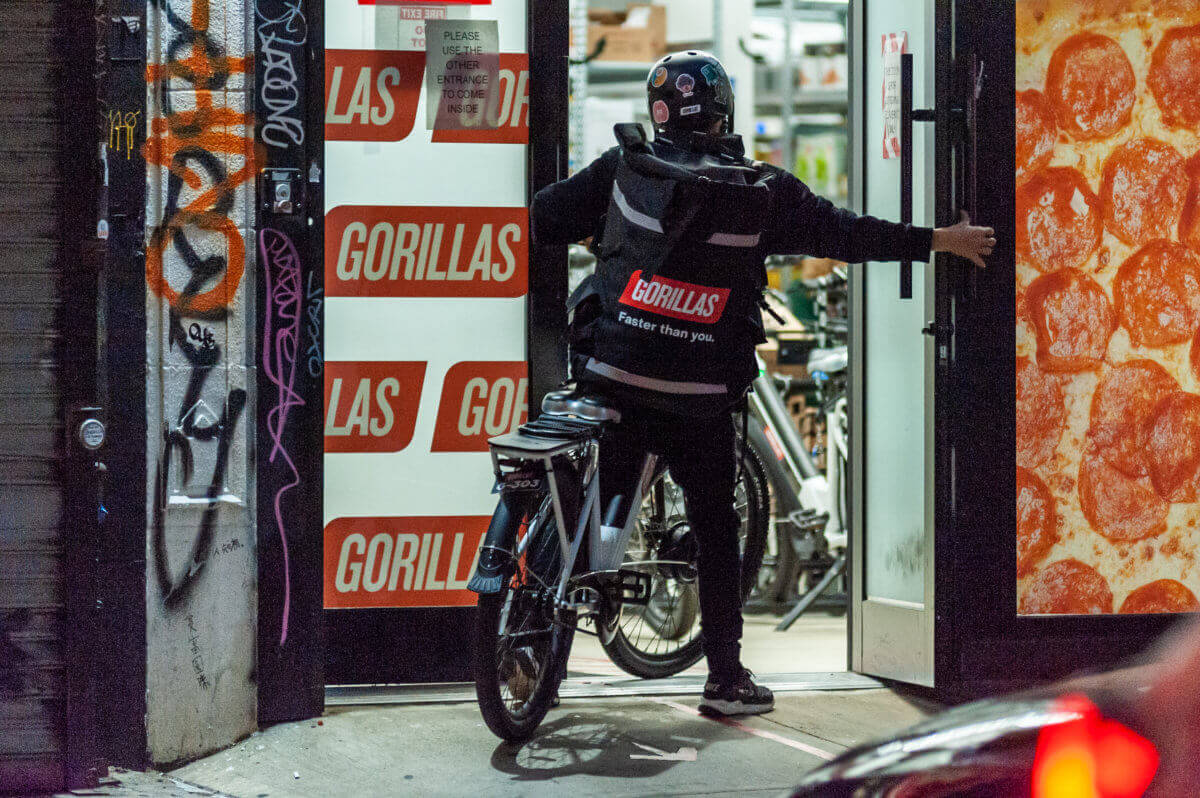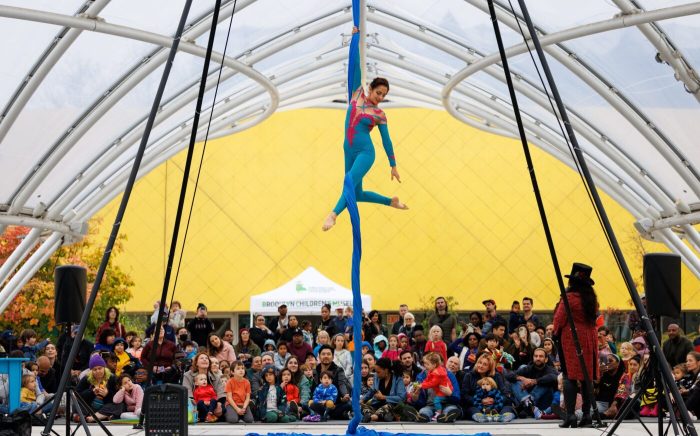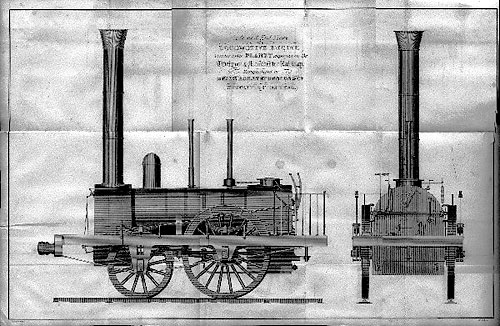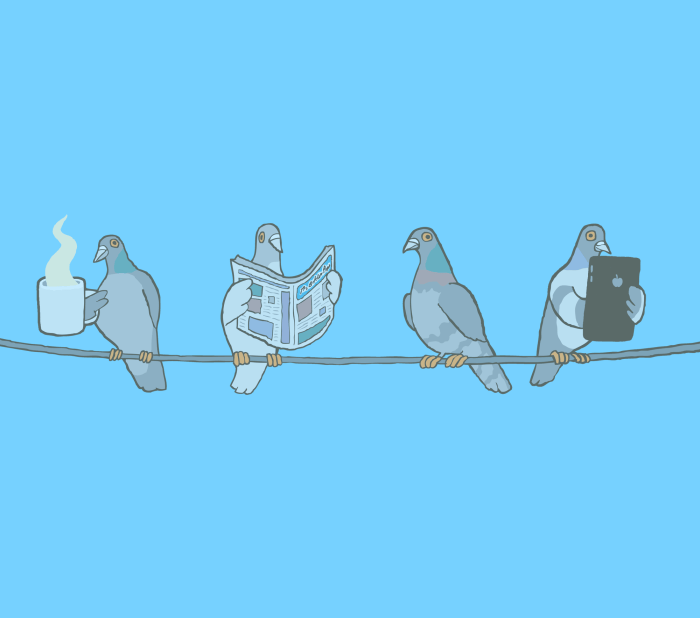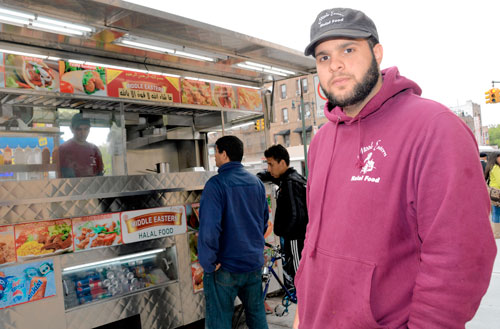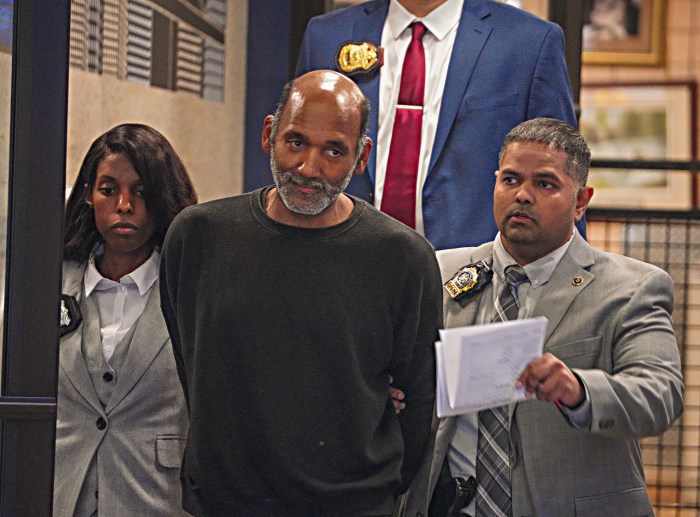A Brooklyn delivery worker says the German grocery delivery company Gorillas failed to properly compensate its employees and is seeking to recoup unpaid wages for himself and hundreds of his colleagues, according to a class action complaint filed in Kings County federal court on Tuesday and first reported by Courthouse News.
Francis Coleman, who has worked for the multinational quick-commerce business since last fall, claims in the complaint the company sent its employees home without pay on slow days and failed to provide uniform maintenance pay required by state law.
“In New York, if you are required to wear a uniform and you’re paid minimum wage for one of these delivery driver apps, then the app has to pay uniform maintenance pay,” said Coleman’s lawyer Mohammed Gangat. “They didn’t do it for Francis, and they didn’t do it for the rest of their employees.”
There is an exception to the law, Gangat said — employees who make over minimum wage might not be entitled to uniform maintenance pay, depending on how much over minimum they earn. Any Gorillas delivery workers making more than minimum wage might not be eligible for uniform maintenance pay — still, he said, he believes hundreds of people were impacted.
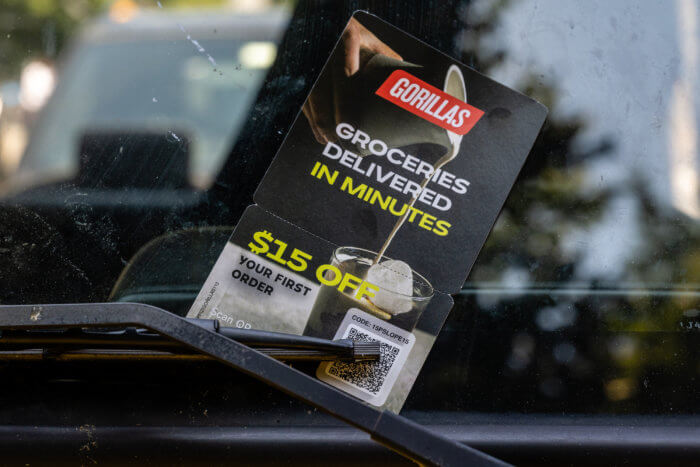
“This is just for daily maintenance,” Gangat explained. “New York has a statute that if you owe uniform pay, this is the amount you have to pay to them each week. It’s not a significant amount, Gorillas could have easily done it.”
He thinks Coleman was entitled to just about $18 per week for uniform maintenance.
In the next few months, Gangat said, he will file a motion arguing that all Gorillas employees making minimum wage were required to wear a uniform and were not given uniform maintenance pay. If the motion is granted, the court would require Gorillas send notice out to its current and former employees to let them know they could sign onto the class action lawsuit.
Berlin-based Gorillas emerged in the city last year as the quick-commerce grocery delivery industry boomed. Promising fresh groceries at your door in fifteen minutes or less — with no minimum purchase and low surcharges — the VC-backed companies quickly filled empty storefronts across the city.
Of course, food delivery in New York City was nothing new — but, amid demands for fair pay and better treatment for the city’s contracted delivery workers, Gorillas and its contemporaries promised all of their couriers would be salaried part or full-time workers with benefits, rather than gig workers struggling to find enough work.
Gorillas also provides its delivery workers with e-bikes, insulated bags, and other gear — gloves, helmets, and vests, all emblazoned with its red-and-white logo.
“If you do UberEats, you’re waiting around for an order and you get paid per order,” Coleman said. “But Gorillas was promising to pay per hour … so you could have a work-life balance. Not necessarily that you could choose your schedule, but you have a place to show up to, people to build with, as far as having a good community.”
But, all was not well, according to the complaint. Coleman was hired at $15 per hour in Nov. 2021 and usually worked at least 40 hours per week at a micro-warehouse, or dark store, in Williamsburg.
Gorillas couriers, like many delivery workers, also had to use their personal cell phones on the job to make deliveries, photograph proof of delivery, and talk with customers and their bosses. Coleman says in the complaint the company gave employees $10 per month to use toward their phone bills. The $10 reimbursement was not enough to cover the actual costs associated with using the phone for work, according to the complaint — and the combined costs of uniform maintenance and phone bills meant Coleman’s salary was essentially less than minimum wage.
Earlier this year — as a number of other quick-commerce grocery delivery companies folded — there wasn’t always enough work for all the employees, and, sometimes, they’d be sent home early, and without pay.
State law requires employers to pay workers who show up to work for at least four hours or for the full shift they were scheduled for — whichever is less money. Coleman was sent home without a paycheck at least once a week in March 2022 and at least twice a week in June and July, according to the filing.
“I started out with a pretty good team, and then after a while, they just cut a lot of people, fired a lot of people, some of them got hurt,” said Coleman, who had previously worked as a gig worker for DoorDash and UberEats. “After a while, it became like an app. They started changing the technology, downsizing the company … the company just dramatically changed.”
Gorillas does not comment on litigation, a spokesperson told Brooklyn Paper.
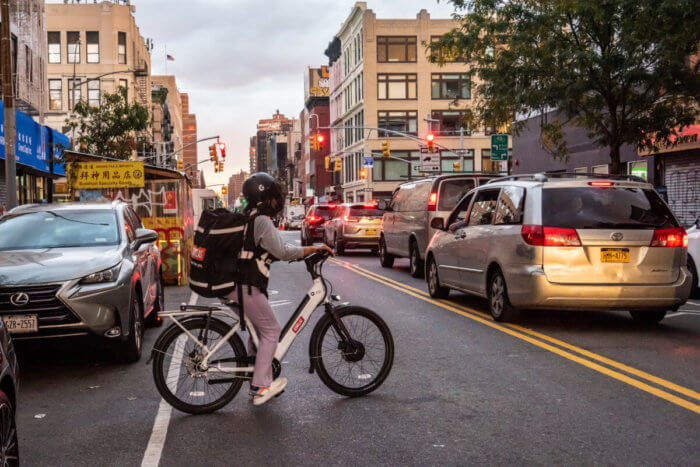
Coleman said the pay wasn’t the only issue — the company’s electric bicycles and batteries started breaking, and some bikes were unsafe to ride — it became harder for employees to juggle their deliveries because they were sharing bikes and dealing with dysfunctional equipment. Eventually, he said, he realized there was no path forward at the company and quit.
Gorillas, one of a few quick-commerce delivery services still operating in New York City after the bubble popped earlier this year, employs at least 400 people at 18 dark stores across the city, a company rep told Brooklyn Paper sister publication amNew York Metro last month.
In Berlin — the company’s headquarters — workers have unionized, forming the Gorillas Workers Collective after they say they were shorted payments and given faulty bikes. While no wide-scale organization efforts have taken place in New York, local lawmakers are seeking to regulate the industry — forcing dark stores to acquire city licenses and restricting the speed and weight of deliveries.
“Given the sort of unique nature of these companies, given the innovative nature of these companies, I think there’s even gaps in the labor law where legislators need to come in and make up specific regulations and wage rules just for these companies,” he said. “What is Gorillas? Are they a food service, are they a supermarket? There are these gray areas in the law that I don’t think are ready to deal with companies like this.”
New companies like Gorillas are eager to enter the market and grow their footprint and customer base, Gangat said, but often fail to follow labor laws and don’t treat their employees fairly.
“New York City is a big prize, and it also comes with a big set of regulations for our workers,” Gangat said. “If there’s tech companies that want to come and take this prize, they need to pay the cost, which is following our labor laws.”
Correction 10/11/22, 5:05pm: This story previously said workers making over minimum wage are not eligible for uniform maintenance pay — workers making over minimum wage may or may not be eligible, depending on how much over the minimum they earn.


